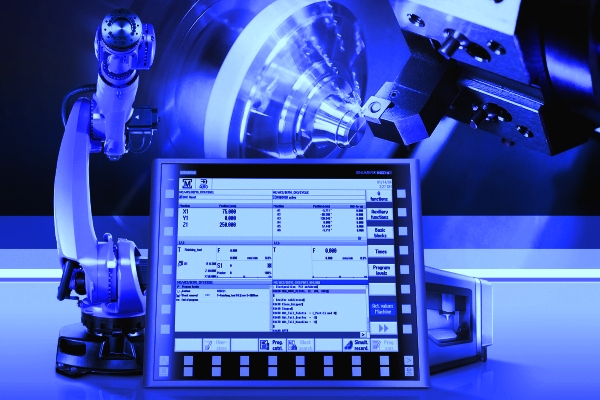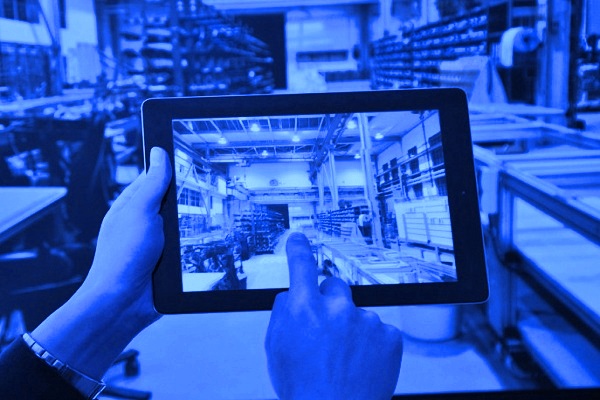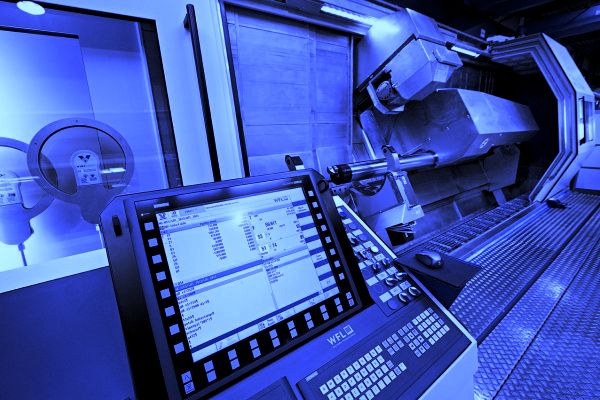Industry 4.0
The relationship between industrial automation and Industry 4.0
The concepts of industrial automation and Industry 4.0 go hand in hand. In fact, industrial automation is a perennially evolving concept. Reaching the full robotic control of an industrial machinery that tends to be more and more autonomous, thanks to an increasingly advanced technology, perhaps with the ability to update, does nothing but lead to the concept of Industry 4.0.
Industrial automation in our days and in the future
If the birth of the first machines belonged to the First Industrial Revolution, Industry 4.0 has as its mother the Fourth Industrial Revolution, which is taking place in recent years, even though not everyone is really aware of it.
First of all, today’s technologies allow a correct use of information technology and data, with a system that allows to centralize and conserve the flow of information that circulates through the robotic system. The second step to be taken to obtain a model of Industry 4.0 is to enhance the data collected. In fact, it is estimated that only a very low percentage of industrial information, which is even around 1%, is actually used today.
It was thus thought that Industry 4.0 could be constituted by the so-called “machine learning“: thanks to this system, robots could even learn concepts while carrying out their task, improving and making the other machines understand the data and information which he collected, to allow general improvement. Man is relegated to the third stage of the Industry 4.0 process. He would deal with the robotics management and the entire industrial automation, thanks to the “touch” technology that allows to interact directly with the machine or the automated system, influencing their activity and, consequently, improving the whole system. productive. The most important point however of the Industry 4.0 is to move from the information, data and improvement system (both automatic and manual) to the real and industrial one. It is therefore a matter of the actual realization of the imposed tasks, but also of the 3D printing, of the communications, of the interactions between machines and between robots.
First of all, today’s technologies allow a correct use of information technology and data, with a system that allows to centralize and conserve the flow of information that circulates through the robotic system. The second step to be taken to obtain a model of Industry 4.0 is to enhance the data collected. In fact, it is estimated that only a very low percentage of industrial information, which is even around 1%, is actually used today.
It was thus thought that Industry 4.0 could be constituted by the so-called “machine learning“: thanks to this system, robots could even learn concepts while carrying out their task, improving and making the other machines understand the data and information which he collected, to allow general improvement. Man is relegated to the third stage of the Industry 4.0 process. He would deal with the robotics management and the entire industrial automation, thanks to the “touch” technology that allows to interact directly with the machine or the automated system, influencing their activity and, consequently, improving the whole system. productive. The most important point however of the Industry 4.0 is to move from the information, data and improvement system (both automatic and manual) to the real and industrial one. It is therefore a matter of the actual realization of the imposed tasks, but also of the 3D printing, of the communications, of the interactions between machines and between robots.
The advantages of industrial automation and Industry 4.0
These two industrial concepts would lead, first of all, to qualitative advantages. The artificial intelligences, in fact, allow to obtain excellent results of the products made, with the minimum waste of defective products (if not even a zero gap) and a precision in the realization of each phase almost perfect. Therefore the customer is guaranteed on the quality, reliability and efficiency of the product purchased.
The second advantage is in terms of timing. The advanced robotic automation, but even more the Industry 4.0, allow to reach the finished product stage in much less time. This means an advantage both at an economic level and at a strategic level. In fact, once the industry succeeds in obtaining a much higher number of products at the same time, then the management of the industry could identify new markets and new questions to be satisfied, increasing the number of loyal customers and ensuring a turnover. even bigger. Apart from the cost initially incurred for the purchase of machinery and robots, industrial automation guarantees a very low cost. In fact, it should take into account periodic costs of maintenance and control of the correct functioning, in addition to those of electricity, necessary oils and other elements.
The second advantage is in terms of timing. The advanced robotic automation, but even more the Industry 4.0, allow to reach the finished product stage in much less time. This means an advantage both at an economic level and at a strategic level. In fact, once the industry succeeds in obtaining a much higher number of products at the same time, then the management of the industry could identify new markets and new questions to be satisfied, increasing the number of loyal customers and ensuring a turnover. even bigger. Apart from the cost initially incurred for the purchase of machinery and robots, industrial automation guarantees a very low cost. In fact, it should take into account periodic costs of maintenance and control of the correct functioning, in addition to those of electricity, necessary oils and other elements.


